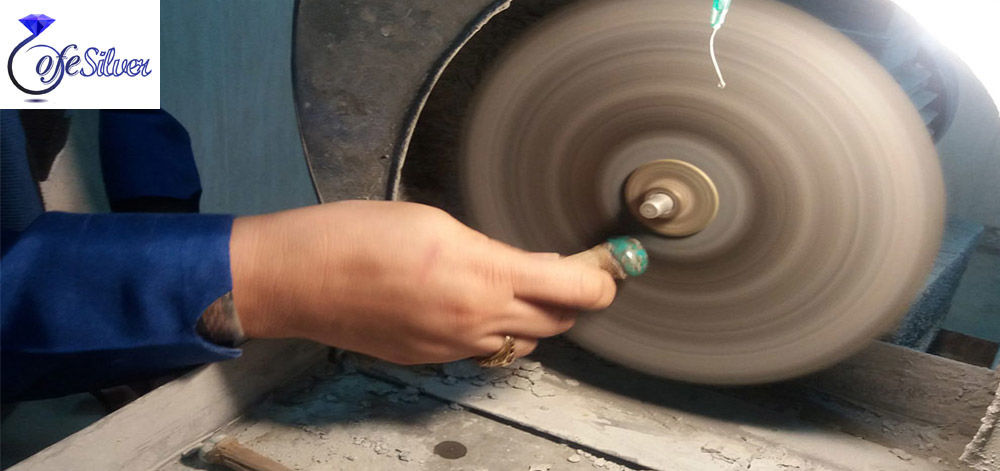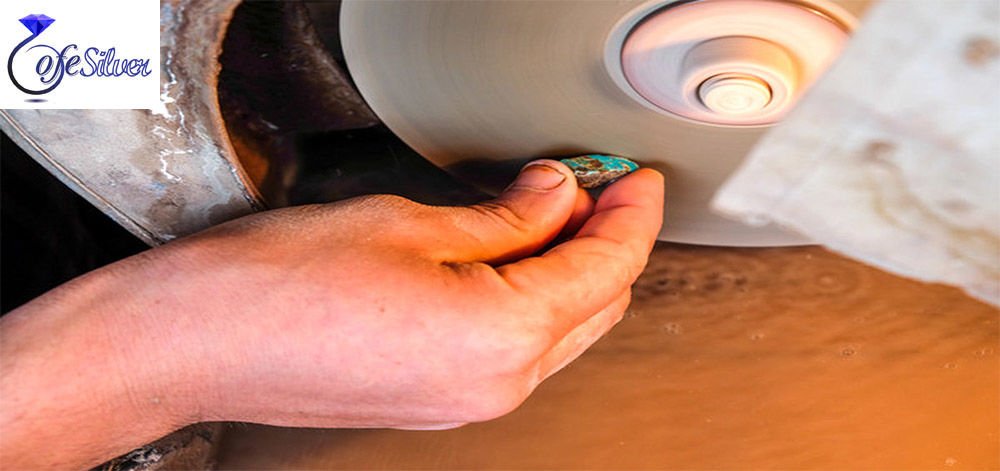In the stone cutting tutorial, you will find a lot of step-by-step information about how to cut and crush the stone and create a new stone. You can ask the experts in this field about how to cut and do this in consultation with them.
Important points in stone cutting training
The diversity of stones and mines in the country with their different uses makes it difficult for architects and employers to choose the right type of stone. Here, we are trying to address some tips about stone cutting training that make its use in the building not only affordable but also sustainable in the long term.
1 - Dimensions
Building stones are cut in square or rectangular dimensions. According to the type of application, you can buy a stone that has suitable dimensions. Today, with the advancement of stone cutting technologies in different dimensions, it is possible to make the best choice in construction stone cutting. For example, 40 ˓ 50 ˓ 60 cm tiles can usually be used for flooring small office buildings or residential houses, which have a lower price than larger types of flooring.
It is recommended to use tiles with larger dimensions such as 80 cm in large spaces and halls. Special types of elevator floor stone are carved, which are usually made of marble and are more suitable for use instead of tiles, or the same type of stone can be used under the stairs to increase the color harmony in the stairs. Today, crushers include retail cut sizes in their price lists to allow for smaller spaces.
2- Application
Before teaching stone cutting, we must first determine the place of use of that stone in the building. Some stones have a high absorption rate and should not be used in wet and exposed places. Some stones increase the weight of the building and can be used in limited ways in some parts of the building. It is more suitable to use some stones in the walls of the building because they are not exposed to pressure
3- Analysis
Before the stone cutting training, be sure to ask the seller to provide you with a table of how to cut stones. Due to the high importance of this analysis, many suppliers and quarries put this table on their site so that the customer can make a more suitable choice.
Rock analysis is divided into physical and chemical categories. In the chemical analysis performed by the device, all the elements that make up the stone are shown. In physical analysis, the mechanical properties of stone such as specific gravity, compressive strength and water absorption are measured, which are important parameters for selecting and purchasing stone.

- easy access
Small mines have access to certain types of stones, so it is difficult to cut these types of stones. Large mines, with more production and processing, do the stone cutting process more easily. Expand access to the stone. It is usually tried to use large ores in stone cutting training so that the project does not face a shortage of stone supply.
5- Processing
Stone processing is one of the important parameters in stone cutting training. The high amount of resin use reduces the quality of the stone. Lack of calibration of thickness and dimensions that are not cut correctly are highly effective in stone cutting.
6- Color matching in stone cutting process
The use of light colors such as white and beige colors increases the amount of light in dark spaces, and vice versa, in spaces where there is enough light in the environment, the spectrum of brown to dark colors can be used.
Stone cutting tool
When it comes to working with natural stone, it is essential to have the right tools to properly cut the stone. From basic hand tools found at any hardware store to advanced power tools and everything in between, there are a variety of stone cutting tools available for different purposes.
• Rock hammer
A stone hammer is commonly used to cut and shape natural stone. Here are some steps for cutting stone with a rock hammer:
1- Choose the right stone hammer for the job. Stone hammers have different types and sizes, and choosing the right one can make the cutting process easier and more efficient.
2- Mark the stone to determine the location of your cuts. This will help you achieve the desired shape and size.
3- Use a rock hammer to make shallow cuts along the marked lines. Start with small strokes and gradually increase the force to make a deeper cut.
4- Use the chisel to separate the stone pieces along the cut lines. Be careful not to hit the stone too hard and age
g
Do not hurt or injure yourself.
5- Smooth the edges of the stone with a stone hammer or a file to achieve the required shape.
6- First, create an outline of the shape of the stone you are considering, and then use the point chisel to refine it further. Scraping the chisel along the stone creates small lines that are later smoothed out using a claw chisel.
7- When using a claw chisel, hold it at a 45 degree angle and adjust it for harder stones. Be sure to wear proper eye protection in addition to a face shield or mask during this process.
8- To align the stone, make a series of small lines around the outside of the shape with a distance of 1 to 1.5 cm.
9- Then create a cross pattern by drawing lines in the other direction. This creates small ridges that can be removed with a chisel.
10- Remember to work with stone cutting tools slowly and carefully.

• Stone cutting
If you don't know how to cut stones by hand, a stone chipper is a useful tool to have in your toolbox. Here are some steps to follow:
1- Use this stone cutting tool to make a series of shallow cuts along the marked lines. This tool creates a groove that guides your subsequent cuts.
2- Gradually increase the force of your blows with a chipping stone or tracer until you make a deeper cut.
3- Use a chisel to separate the stone pieces along the cut lines. You may need to repeat this process to remove larger sections of stone.
• Tile saw
A tile saw is a versatile tool for cutting and turning stone, which can be used to cut all kinds of stones, including paving stones. Here are some steps to using a tile saw to cut stone:
1- Mark the stone on which you want to make your cuts.
2- Fill the saw tank with water to lubricate the blade and reduce dust.
3- Place the stone on the saw table and adjust the saw to guide your cuts.
4- Turn on the saw blade and slowly lower it into the stone. Make sure to use low pressure and let the blade do the work.
- Move the stone along the fence to make the cuts you want.
6- Once you have made all your cuts, turn the saw off and allow the blade to come to a complete stop before removing the stone.
7- By doing these steps, you can easily and accurately cut paving stones and other types of stones with a tile saw.
• Wedge
Wedge is a traditional method for cutting and turning stone and is still used today for precise cutting.
final word
Learning to turn stone is a process that requires skill and safety precautions, but with the right knowledge you can achieve success. Be sure to wear protective gear, including safety glasses or full face shields, leather gloves, and a mask. Different types of stone require different masonry tools, so make sure you have the right tools for the job. Keep your workplace clean and free of debris. Work in a well-ventilated area. Stone cutting produces a lot of dust, so make sure you work in a well-ventilated area. If you're not sure how to cut a certain type of stone, ask an experienced expert at the Silver Cafe to guide you in the right direction.


